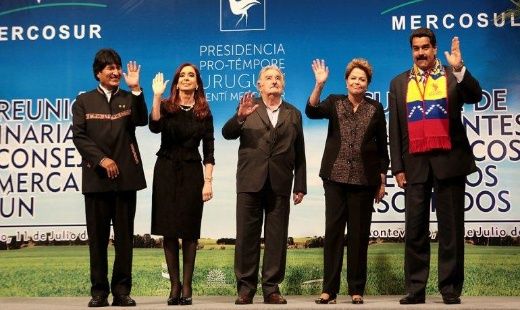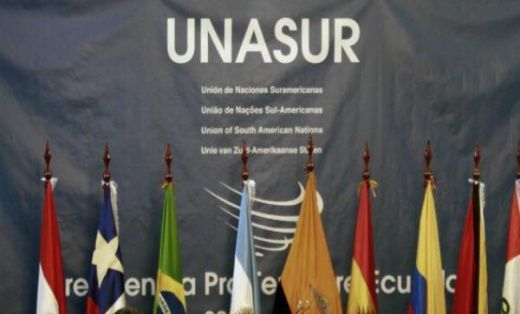Uruguay, one of the smallest South American Nations has, nonetheless, great relevance for the region's markets and business. A relatively modest but efficient economy, with a small population numbering close to 3.5 million, was known as “the Switzerland of America” at the dawn of the 20th Century. Nowadays the inconspicuous country sits between two giants, Argentina and Brazil, and its innovation still demands the world's attention.
This Sunday's election is a contestation between two very different approaches to foreign policy for the region lovingly called “el paisito” (The small country) by its inhabitants. The right wing National Party (P.N.), accused of carbon copying most of its campaign promises from the leftist Broad Front coalition (F.A.), nonetheless is significantly different when it comes to Uruguay’s foreign policy.
The right wing National Party is accused of copying most of its campaign promises from its opponents.
The president and vice president strategy of Tabare Vazquez and Raul Sendic represent the continuity of the policies promoted by their left wing Broad Front coalition that considers MERCOSUR and UNASUR as means to integrate regional economies instead of compete for individual representattion in world markets.
A second Broad Front administration, led by Vazquez, would push forward a MERCOSUR citizenship statute to allow the work force within group member nations to have free transit and equal rights, as well as access to public health and education. Such a regional alliance still considers prospective markets and competitors for Uruguayan goods and produce.

Presidents of Bolivia, Argentina, Uruguay, Brasil and Venezuela at the MERCOSUR meeting on July 2014 (Photo: Reuters)
On the other hand, Luis Alberto Lacalle Pou and Jorge Larrañaga from the National Party present an alternative view to the geopolitical situation of the Oriental Uruguayan republic (R.O.U.). Lacalle says Uruguay has fallen hostage to MERCOSUR and grew commercially isolated during the last presidential terms.
Lacalle Pou believes that Uruguay-Argentina relations have been forgotten and blames Tabare Vazquez’ first administration for letting them go sour over the Botnia crisis, when the border crossing was closed several months by demonstrators against a paper factory allegedly polluting the Gualeguaychu river, manifesting an unprecedented feud among the two closely related countries.
Vazquez' program considers UNASUR “Our subcontinent’s most ambitious political consultation space.”
Thus, as a priority, the National Party promises to strengthen the relationship with Argentina by using diplomatic staff in the Uruguayan embassy, and with specialized personnel to care for political, commercial, tourist and cultural issues; including an ambassador of higher “hierarchy” to restore the relationship with the country they consider their biggest and most important market.
The right wing alternative also shows strong interest in traditional markets such as the U.S., pointing to the trade agreement's different advantages. Lacalle’s campaign program states their intention to work on complementary agreements with Peru and Colombia to access the Pacific Alliance markets, all of them signers of the much criticized Free Trade Agreements with U.S.

As a final point that shows how different both campaigns are on international politics, Vazquez mentions the Union of South American Nations (UNASUR) in the Broad Front's program as “Our subcontinent’s most ambitious political consultation space”, and highlights its importance in cooperation talks and the region’s peace efforts. Lacalle Pou's National Party program doesn’t even mention the organization in his 178 page campaign summary.